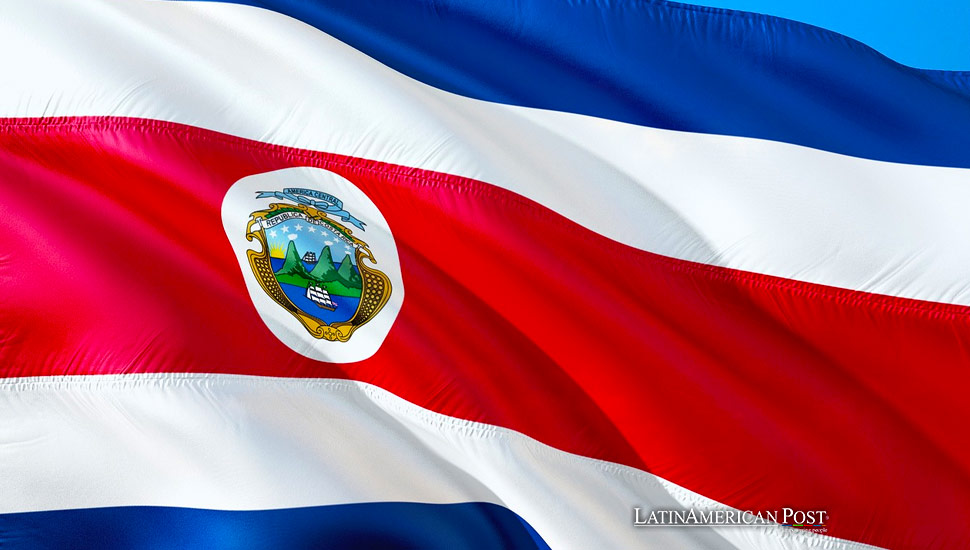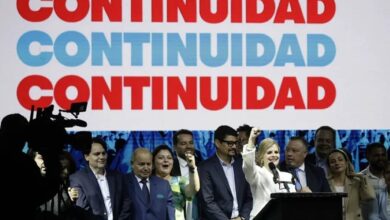Costa Rica Debates Referendum Threatening Oversight of Public Funds

Costa Rica’s proposed referendum to reform the Comptroller General’s Office sparks controversy. Critics argue it threatens oversight of public funds, while the government insists it’s necessary for efficiency. The debate highlights broader concerns about transparency in Latin America.
The Comptroller General of the Republic (CGR) of Costa Rica, an independent institution responsible for overseeing the legality, economy, efficiency, and effectiveness of public administration, has raised alarms over a government-backed referendum to reform the institution. The CGR claims this initiative seeks to “dismantle the control over public funds,” potentially leading to unchecked spending and reduced accountability. Currently, the CGR has the power to audit public entities, review public contracts, and issue recommendations to improve the use of public funds.
Marta Acosta, the Comptroller General, sent an analysis to the media, expressing grave concerns about the proposed referendum. She stated that the reforms would facilitate “handpicked” contracts without public tenders, hinder the registration of public debt, and prevent the timely identification and reporting of illegalities in public projects. Acosta warned that such changes could lead to a lack of preventive measures against inefficiencies and corruption.
On June 5, Costa Rican President Rodrigo Chaves presented a legislative proposal to Congress, advocating for a referendum to introduce reforms to the CGR. The ‘Jaguar Law,’ named after the powerful feline Chaves likens to Costa Rica’s economy, seeks to amend six articles of the CGR’s Organic Law and one of its Internal Control Law. The proposal is currently under review by Congress, and if approved, it will be put to a national referendum. The timeline for the referendum process is yet to be determined, but it could take several months for the necessary legislation to be drafted, debated, and approved.
Chaves asserts that the reforms aim to “strengthen the Comptroller’s Office in the interest of the nation,” preventing what he describes as “absurd, arbitrary, and illegal interpretations” by the CGR. He envisions a more efficient institution that facilitates progress rather than obstructing it. The proposed changes, according to Chaves, will streamline processes, reduce bureaucracy, and attract more foreign investment, thereby boosting the country’s economy. However, analysts and critics contend that the proposed changes will weaken the CGR’s oversight capabilities, diminishing its power to enforce mandatory compliance with its resolutions.
Implications for Public Oversight
In her analysis, Acosta emphasized that reducing the CGR’s powers would deprive Congress of essential information for overseeing public funds. “When the entity being audited, in this case, the Executive Branch, designs its oversight model, it naturally chooses one that is weak and limited in scope,” she remarked.
Acosta highlighted that the proposed reforms would create significant gaps in oversight mechanisms, preventing the CGR from issuing timely warnings to avert economic damage to the public treasury. Instead, the CGR would only be able to act after damages, eliminating the preventive measures that currently help curb potential inefficiencies, irregularities, or corrupt activities.
The tension between the CGR and the Executive Branch in Costa Rica is not new. President Chaves has consistently criticized the CGR during his two years in office, particularly for its warnings about a $450 million project with the Central American Bank for Economic Integration (CABEI) to build and lease government buildings on state land. The CGR cautioned that existing Costa Rican legislation does not cover this model. Another instance was when the CGR flagged potential legal concerns with a public-private partnership intended to develop a $ 850 million marina in the province of Limón. These examples highlight the CGR’s role in preventing potential financial and legal risks.
Similarly, Chaves has taken issue with the CGR’s warning against a public-private partnership intended to develop a $850 million marina in the province of Limón. The project involves private investment on state land, and the CGR flagged potential legal concerns.
This debate is part of a broader issue across Latin America, where the balance between economic development and public oversight is often contentious. In Mexico, for instance, efforts to streamline bureaucratic processes and attract foreign investment have sometimes clashed with transparency and anti-corruption measures. Meanwhile, muscular oversight bodies in Brazil and Argentina are critical for monitoring extensive public works and preventing corruption, even if they occasionally slow down projects.
Potential Consequences of the Referendum
Should the referendum pass, Costa Rica could face significant changes in managing and overseeing public funds. Critics argue that without robust oversight, there is a higher risk of corruption and mismanagement, which could erode public trust in government institutions. Furthermore, the potential for unchecked spending and inefficient use of public funds could negatively impact the country’s reputation for transparency and accountability, which could in turn affect its ability to attract foreign investment and maintain strong international relations.
One of the main concerns is that the lack of preventive oversight could lead to increased public debt and financial instability. By allowing projects to proceed without thorough scrutiny, the government may inadvertently endorse inefficient or overly costly initiatives, burdening future administrations and taxpayers with unnecessary expenses. This could also affect the country’s international relations and its ability to attract foreign investment, as potential investors may be deterred by the perceived lack of transparency and accountability in the management of public funds.
Additionally, the proposed reforms could undermine the CGR’s ability to enforce compliance with legal and ethical standards. This could create an environment where illegal activities go unchecked until it’s too late to mitigate the damage, further exacerbating issues of transparency and accountability.
Many voices advocate for the preservation of a strong and independent CGR in light of these potential dangers. Effective oversight is crucial not only for preventing corruption but also for ensuring that public funds are used efficiently and in the best interest of the nation. A robust CGR can provide the necessary checks and balances to hold the government accountable and safeguard public resources.
In defending the CGR’s role, Acosta and other proponents of strong oversight argue that efficiency and progress do not have to come at the expense of transparency and accountability. By working within the existing framework and improving current processes, it is possible to achieve both economic development and rigorous oversight.
Balancing Efficiency and Accountability
The debate over the proposed referendum to reform Costa Rica’s CGR highlights a critical issue facing many Latin American countries: balancing efficient governance with the imperative of maintaining robust oversight and accountability. As Costa Rica navigates this complex issue, the outcome will significantly affect the country’s financial stability and public trust in its institutions. It’s crucial for citizens to understand the implications of the proposed changes and participate in the referendum process to ensure their voices are heard and their interests are protected.
Also read: Roche Opens $100 Million Campus in Costa Rica to Boost Health Solutions
For Latin American nations, the Costa Rican case serves as a stark reminder of the value of transparency and the dangers associated with weakening oversight mechanisms. By sharing experiences and striving for best practices, the region can move towards a future where economic progress and accountability are not mutually exclusive.




